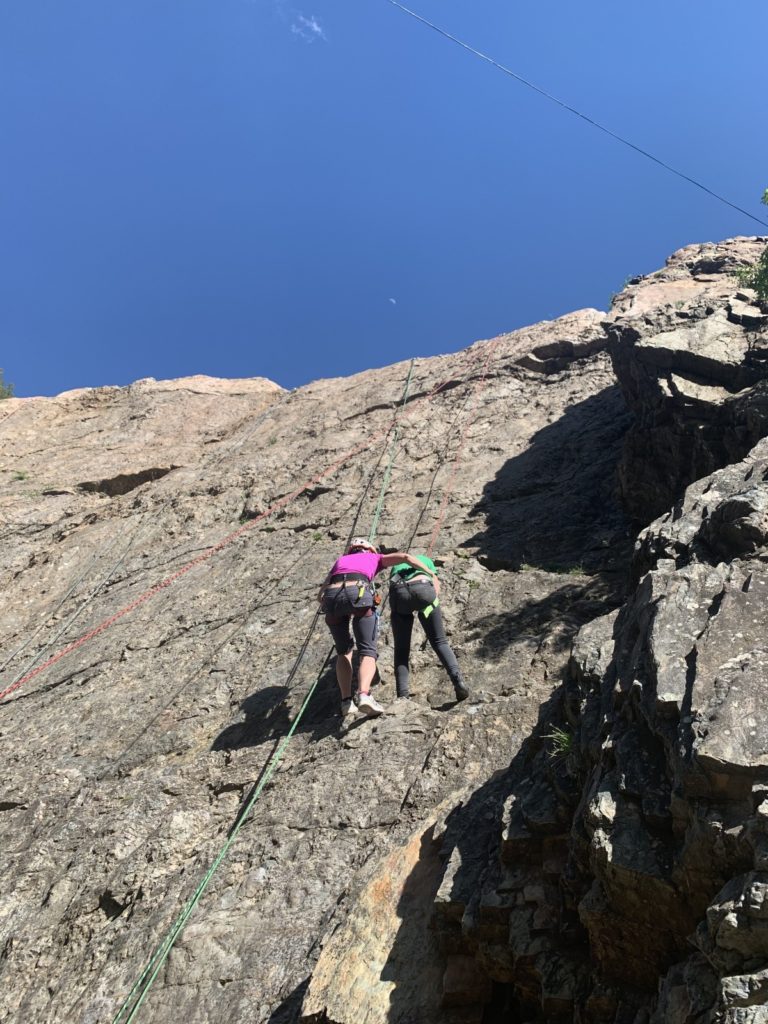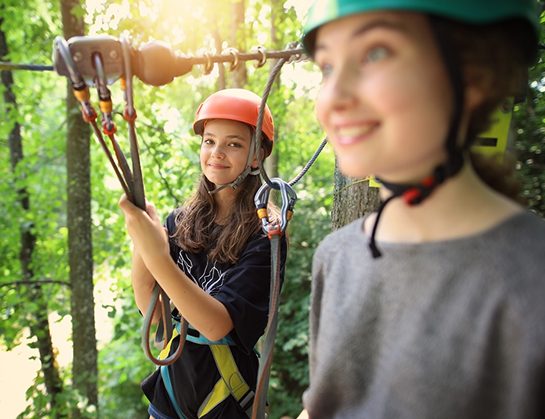The Story of Pivot Adventure
Did you know May is both Mental Health Awareness AND Teen Self-Esteem Month? Pivot Adventure, a non-profit in Utah, utilizes recreational therapy to provide affordable mental health courses for teenagers. Their unique approach is critical to the effectiveness of these social services.
Mental Health in Young People
The need for mental health services aimed at young adults is at an all-time high.
Since 2016, the number of adolescents experiencing at least one major depressive episode has grown by a staggering 60%. Teens are reporting an increase in depressive symptoms and suicide-related outcomes. Shockingly, suicide is the leading cause of death among 10–17-year-old children.
For those experiencing adverse social determinants of health—such as lower socio-economic status, limited access to education, or food insecurity—the rates are even higher.
With traditional therapy program fees sometimes exceeding $60,000, many families are left without alternatives to assist their teens. Pivot Adventure, a recreational therapy non-profit in Utah, is working to change this narrative.
Who is Pivot Adventure?
Nestled in the Rocky Mountains, Pivot Adventure provides eight-week resiliency courses after school. These courses help teens build self-esteem, practice managing stressful situations, and foster a sense of community with other students.
“We are an outdoor mental health course,” states co-founder and guide, Katie Allred. “Think of your PE course in high school, designed to improve your physical health. We take a similar approach, but for the mental health side of things.”
Part of Pivot’s appeal is the adventurous activities they offer teens. In the winter, they snowshoe or cross-country ski, whereas the summer allows for hiking, rock-climbing, and rappelling. While these activities are all safe (and carefully led by certified guides), they offer an element of “perceived risk”. In this way, Pivot offers hands-on experience practicing how to manage stressful situations.

A Pivot Adventure Guide taking three students snowshoeing
and sledding (used with permission).
Pivot Adventure’s outcomes are not just about giving adolescents cool experiences. They are aimed at increasing multiple health and wellness indicators, providing both teens and parents the tools they need to thrive.
The recreational guides do this through a variety of industry-leading techniques. By keeping adventure groups small— Resiliency courses have a ratio of 3:1 teens to guides —Pivot can tailor games, object lessons, and stories to individual needs. Those needing to work on communication are given difficult tasks where they learn to ask for help, while students who may be shy are encouraged to lead games and take charge.
Ignoring the Loon Noises
One way Pivot teaches teens to mitigate stress is through the example of loons.
Loons are a North American bird that always fly in pairs, often landing to rest on quiet lakes. If the loons hear other loon noises nearby— or even fake loon noises —they will immediately leave the lake to search for somewhere more secluded. Their fear that a bigger, scarier loon nearby can prevent them from resting and enjoying the lake.
We are not so different. When we hear a “loon noise” (like a call from our boss or math exam coming up), our fight-or-flight kicks in and we stress ourselves out, sometimes to the point of missing out on a worthwhile experience. Pivot’s guides work on helping these students recognize the loon noises in their minds and let them go.
During one activity, Katie was helping a student tie-in for a rock climb when she noticed the teen start to get nervous. “How are you feeling?” Katie asked, to which she got no reply. Finally, the girl said, “There are so many things going through my head right now. I can’t even hear.” In this moment, Katie was able to remind this student that you can’t make your fears go away (it’s part of our biology) but you can learn to dance with them. They decided to picture a silly make-believe professor as the voice to all the noise and then laughing together, the girl successfully made the climb.
The best part of this experience? She came back the following week and practiced dealing with the stressful situation again. She was able to exercise that mental health muscle.
“Once these teens see that they have the resiliency to do hard things, the world stops happening to them, and they start happening to the world.”

A Pivot Adventure Guide coaches one teen through
a stressful moment rock-climbing (used with permission).
Addressing the Whole Person
Perhaps the most notable part of Pivot Adventure is their course structure.
Typical mental health and recreation services for teens are designed to be weeks-long wilderness programs, where adolescents are completely stripped of any outside networks or supports. Not only is this incredibly expensive (reaching the upwards of $60,000), the teens are sometimes forced to participate even when they adamantly refuse.
Instead, Pivot provides a once-a-week after school course that allows teens to keep their structure. They can still attend school, talk to their friends, and sleep in their own bed at night. Central to this plan is complete buy-in: the adolescents need to be just as on-board with the course as their parents.
For teens experiencing adverse social determinants of health, a course from Pivot Adventure could mean the difference between receiving help or being left behind. At only $1,500 a course (and with scholarship opportunities available), Pivot can offer effective mental health services to those who need it most.
By meeting teens where they are at—and recognizing the need for mental health experience as a part of everyday routine—Pivot embodies the importance of a whole person care approach.
Toward the Future
Pivot Adventure’s hallmark comes from not only teaching self-esteem, but self-efficacy. “Self-esteem is saying, I believe I’m a good person,” relates Allred. “Self-efficacy is knowing I can do hard things.”
The power of self-efficacy is that it works to build and reinforce self-esteem. Together, they help instill these adolescents with the strength and resiliency they need to better face adversity and accomplish the goals they set.
Eccovia is proud to be a sponsor of Pivot Adventure. We value the work that social service organizations offer to help improve mental health outcomes. Our industry-leading case management platform ClientTrack™ serves hundreds of social service organizations, from HMIS to refugee resettlement to mental and behavioral health. Click here to learn more about our services.



